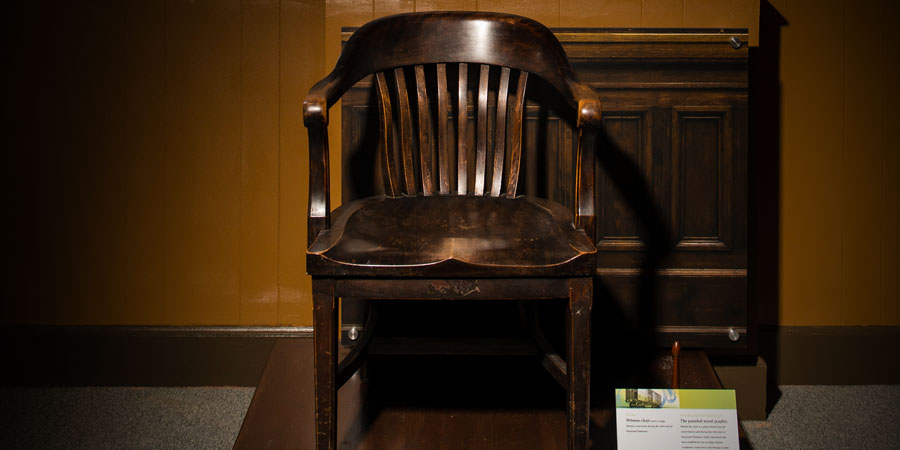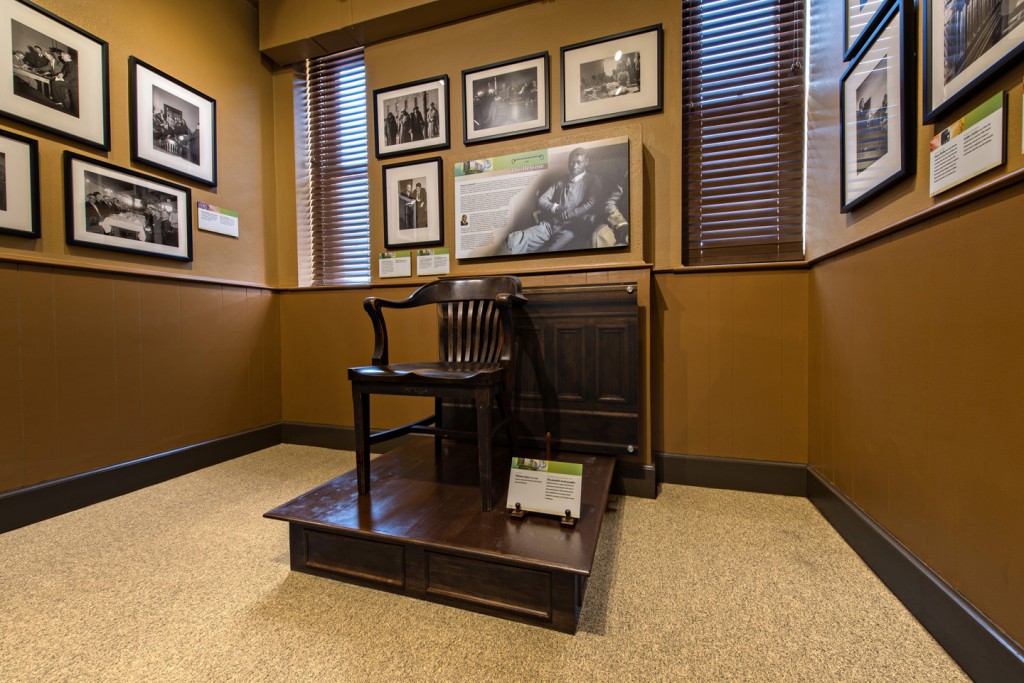This Chair Changed Lives

To most of us a chair is an ordinary object used for work or rest, but for the Scottsboro Boys, their lives rested in a courtroom’s simple wooden chair. A chair that was the scene of a dramatic struggle that was both unnecessary and tragic. The only good that came out of the trial was that it set the stage for the U.S. Supreme Court ruling requiring defendants to be judged by a jury of one’s peers.
If you missed seeing The Scottsboro Boys Traveling Exhibit – it’s true that it has moved on to other venues – the best of that show has been reproduced and is now on display in a smaller, but no less dramatic, permanent exhibit right here in Decatur, Alabama.
This new exhibit may be small on scale, but it is big on impact, featuring the most popular of the thought-provoking black and white photographs from the permanent collection of the Morgan County Archives. Fred Hiroshige, a Japanese-American, was a professional photographer who was allowed to document the now infamous proceedings that were moved to Morgan County under the pretense that the boys would receive a “fair trial.”
After 80 years, this wrong has been righted. Recently, the Alabama Legislature issued posthumous pardons for the “Scottsboro Boys” and McComm Group was honored to help the Archives tell this important piece of Alabama’s history all the way through to today’s final chapter: pardons.
We invite you to visit the exhibit at the Morgan County Archives building located at 624 Bank St in Decatur. You will be moved in ways you do not expect.
This exhibit was made possible through the support of: State Senator Arthur Orr, The Morgan County Archives, The Alabama Tourism Department, The Decatur-Morgan County CVB, The Southern Literary Trail, The Morgan County Commission, and the AMRV Resource Conservation & Development Council.

